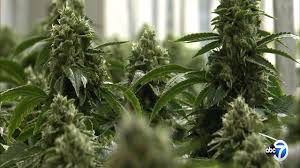he cannabis industry in Illinois is on the brink of significant regulatory changes aimed at enhancing safety and ensuring responsible consumption. As the state marks the fifth anniversary of legal recreational marijuana, lawmakers and regulators are focusing on refining existing laws to address emerging challenges and close loopholes that have surfaced over the past five years.
Background: Five Years of Legalization
Since January 1, 2020, Illinois residents aged 21 and over have been able to legally purchase recreational marijuana. Despite harsh winter conditions on the inaugural day, thousands queued for hours to be among the first to buy legal cannabis. The industry has since experienced exponential growth, with dispensaries opening statewide and generating substantial revenue. In 2022 alone, Illinois dispensaries sold $1.5 billion worth of marijuana products.
Identifying Gaps in Current Regulations
Despite the industry’s success, certain gaps in regulation have become apparent. Intoxicating hemp products, such as those containing delta-8 THC, have entered the market without the stringent oversight applied to cannabis. These products are often sold outside licensed dispensaries, including in gas stations and smoke shops, raising concerns about consumer safety and the potential appeal to minors.
Proposed Regulatory Changes
To address these concerns, Illinois is considering several regulatory adjustments:
- Regulation of Intoxicating Hemp Products: Aligning the oversight of hemp-derived products with that of cannabis to ensure consistent safety standards.
- Packaging Restrictions: Prohibiting packaging that mimics popular candies or foods to reduce the risk of accidental consumption by children.
- Marketing Limitations: Banning advertising strategies that target or appeal to minors, thereby promoting responsible marketing practices.
- Mandatory Safe Packaging: Requiring child-resistant and tamper-evident packaging for all intoxicating hemp products to enhance consumer safety.
- Testing and Taxation: Implementing testing protocols and tax structures for hemp products similar to those mandated by the Cannabis Regulation and Tax Act (CRTA) to ensure product quality and contribute to state revenue.
- Restricted Sales Venues: Limiting the sale of intoxicating hemp products to licensed dispensaries, thereby preventing their availability in unregulated outlets like gas stations and smoke shops.
- Age Restrictions: Mandating that purchasers of intoxicating hemp products be at least 21 years old, consistent with existing cannabis laws.
- Licensing for Hemp Processors: Establishing a ‘hemp consumer product processor’ license to allow current hemp processors to distribute products to adult-use cannabis dispensaries, ensuring a regulated supply chain.
Implications for the Industry and Consumers
These proposed changes aim to create a safer environment for consumers and ensure that products are marketed and sold responsibly. By bringing intoxicating hemp products under similar regulations as cannabis, Illinois seeks to eliminate ambiguities that have allowed unregulated products to proliferate.
For consumers, these adjustments mean increased assurance of product safety and quality. For businesses, particularly dispensaries and hemp product manufacturers, compliance with the new regulations will be essential. This includes adapting to new packaging standards, marketing restrictions, and possibly obtaining additional licenses.
Taxation and Economic Impact
The introduction of taxation on intoxicating hemp products similar to cannabis is expected to generate additional revenue for the state. Currently, Illinois imposes both cultivation and retail taxes on cannabis, contributing significantly to state funds. Extending similar tax structures to hemp products could enhance state revenue and ensure a level playing field within the industry.
Next Steps
As Illinois moves forward with these regulatory changes, stakeholders in the cannabis and hemp industries should stay informed and prepare for compliance. Consumers are advised to purchase products from licensed dispensaries to ensure they meet safety standards. The state continues to prioritize public health and safety while fostering a responsible and thriving cannabis industry.
Conclusion
Illinois’s proactive approach to refining cannabis and hemp regulations reflects its commitment to consumer safety and responsible industry growth. As the state celebrates five years of legal recreational marijuana, these forthcoming changes signify a maturation of the market and a dedication to addressing new challenges in the evolving landscape of cannabis consumption.
Disclaimer – Our editorial team has thoroughly fact-checked this article to ensure its accuracy and eliminate any potential misinformation. We are dedicated to upholding the highest standards of integrity in our content.





More Stories
State of Illinois Introduces New Measures to Regulate Cannabis Industry
State of Illinois Introduces New Measures to Regulate Cannabis Industry
State of Illinois Introduces New Measures to Regulate Cannabis Industry